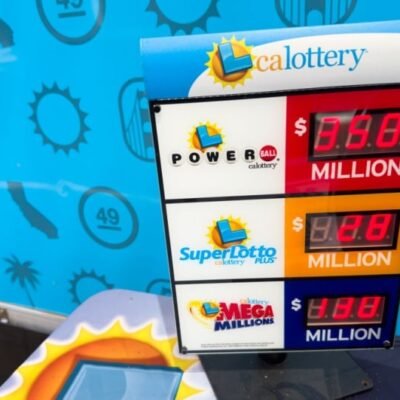Sunday, June 8, 2025 | 2 a.m.
Editor’s note: Este artículo está traducido al español.
President Donald Trump and his administration have continuously assured Nevadans that their interest in nuclear energy doesn’t mean they’ll revive the federal government’s plan to store waste at Yucca Mountain, northwest of Las Vegas.
But the president issuing four executive orders last month to reshape the nation’s main nuclear energy regulatory agency and quadruple nuclear energy capacity to 400 gigawatts by 2050 has local Democrats wary. Trump supported the relicensing of the nuclear repository throughout much of his first term before reversing course.
By January 2026, Trump’s secretaries of energy, defense and transportation are set to brief the president on a “recommended national policy to support the management of spent nuclear fuel.”
In the past, that meant the Yucca Mountain site in Nye County about 90 miles northwest of Las Vegas.
“We have every reason to believe he will try again” to revive Yucca Mountain, Horsford said in a statement to the Sun. “I will continue to fight in Congress to make sure the voices of my constituents — and people all across Nevada — are heard.”
Nevada has been fighting for decades against the repository.
The location was chosen in 1987 as the storage site for 70,000 tons of the country’s spent nuclear fuel and other highly radioactive materials. Those materials were designed to remain 1,000 feet beneath the mountain for at least 10,000 years.
Critics warn that Yucca Mountain’s vulnerability to earthquakes, volcanic activity and fast-moving groundwater — combined with porous rock formations — could allow radioactive waste to contaminate the nearby Amargosa Valley, where hay and forage production supports regional livestock. Many fear transporting nuclear waste to the site would require a route through metro Las Vegas. A single accident or terrorist attack involving transported nuclear waste could cause a dangerous spill and pose a catastrophic risk to Las Vegas residents and its 40 million annual visitors.
U.S. Rep. Dina Titus, D-Nev., makes the argument to congressional colleagues from across the country that Yucca Mountain could affect their constituents as well. If Yucca became the holding site for America’s nuclear waste, trucks and trains transporting it to Nevada would travel through the vast majority of House districts.
The Department of Energy has repeatedly pushed back against those concerns.
In 2020, the department’s Office of Nuclear Energy wrote that spent nuclear fuel has been transported “without any radiological incidents” for decades. And the odds of a container releasing radioactive material in an accident is one in one billion, according to the Nuclear Regulatory Commission.
Congress approved Yucca Mountain as a nuclear repository in 2002, but federal funding was eliminated in 2011 during the Obama administration.
Trump posted on social media during his 2020 presidential reelection bid that he wouldn’t revive plans for the repository: “Nevada, I hear you on Yucca Mountain.”
However, Project 2025 — the right-leaning Heritage Foundation’s blueprint for the current administration that Trump denied involvement with during the 2024 presidential campaign but has closely followed since retaking office — calls the Yucca project “a viable option” to store the nation’s nuclear waste.
The document calls on the Department of Energy to work with the Nuclear Regulatory Commission to finish reviewing the Yucca Mountain’s permit application but clarifies that “finishing the review does not mean that Yucca Mountain will be completed and operational.”
Instead, the project argues completing the process would provide the administration, nuclear industry and Nevadans with all the information available.
Project 2025’s section on the Department of Energy was written by Bernard McNamee, who was a member of the Federal Energy Regulatory Commission under Trump’s first term.
Sen. Catherine Cortez Masto, D-Nev., asked Energy Secretary Chris Wright during his nomination process whether the president would restart the Yucca project if Nevadans were opposed to it. In a written response, Wright flatly said no.
“As we discussed when we met, the people of Nevada are not in favor of Yucca Mountain, and thus President Trump and I do not support Yucca Mountain as a waste repository,” Wright wrote. “I believe we need local support to open a long-term waste storage site.”
Local support isn’t legally mandated, though that would change if the Nuclear Waste Informed Consent Act becomes law.
The bill, backed by Nevada’s Democratic delegation in Congress, would require approval from a state’s governor, local governments and affected Indigenous tribes before the Department of Energy could tap its Nuclear Waste Fund for a repository.
Titus has championed the legislation for a decade. While it’s already been introduced in both the U.S. House and Senate during this congressional session, it hasn’t received any votes.
Shortly after Trump issued the executive orders, Titus’ office posted on X to drum up more support for the bill. Like Horsford, she remains skeptical of the Trump administration’s promises.
“We don’t make it. We don’t use it. Why should we store it?” Titus said about spent nuclear fuel. “We’ve done our part for the atomic legacy of this country. When it goes back to the test site and the Cold War, we’ve already got sacrifice zones. We don’t need anymore.”
Appealing to the Trump administration’s cost-cutting sensibilities, Titus said the biggest argument against bringing Yucca off the sidelines is the cost of getting it up and running. In 2008, the Department of Energy determined it would cost an additional $96.2 billion to create and operate the repository for 150 years. In today’s dollars, that’s $141.1 billion.
Politics aside, a 2021 U.S. Government Accountability Office report on spent nuclear fuel found that Yucca now wouldn’t be able to hold all of the country’s waste anyway.
Titus favors on-site storage at nuclear plants. Reprocessing would also reduce the amount of waste, but not all of it, she added.
“My priority has always been to ensure all affected levels of government have a say in whether nuclear waste is stored in their state. President Trump’s executive orders don’t change that,” Cortez Masto wrote in a statement. “I will continue to fight for my Nuclear Waste Informed Consent Act to become law.”





